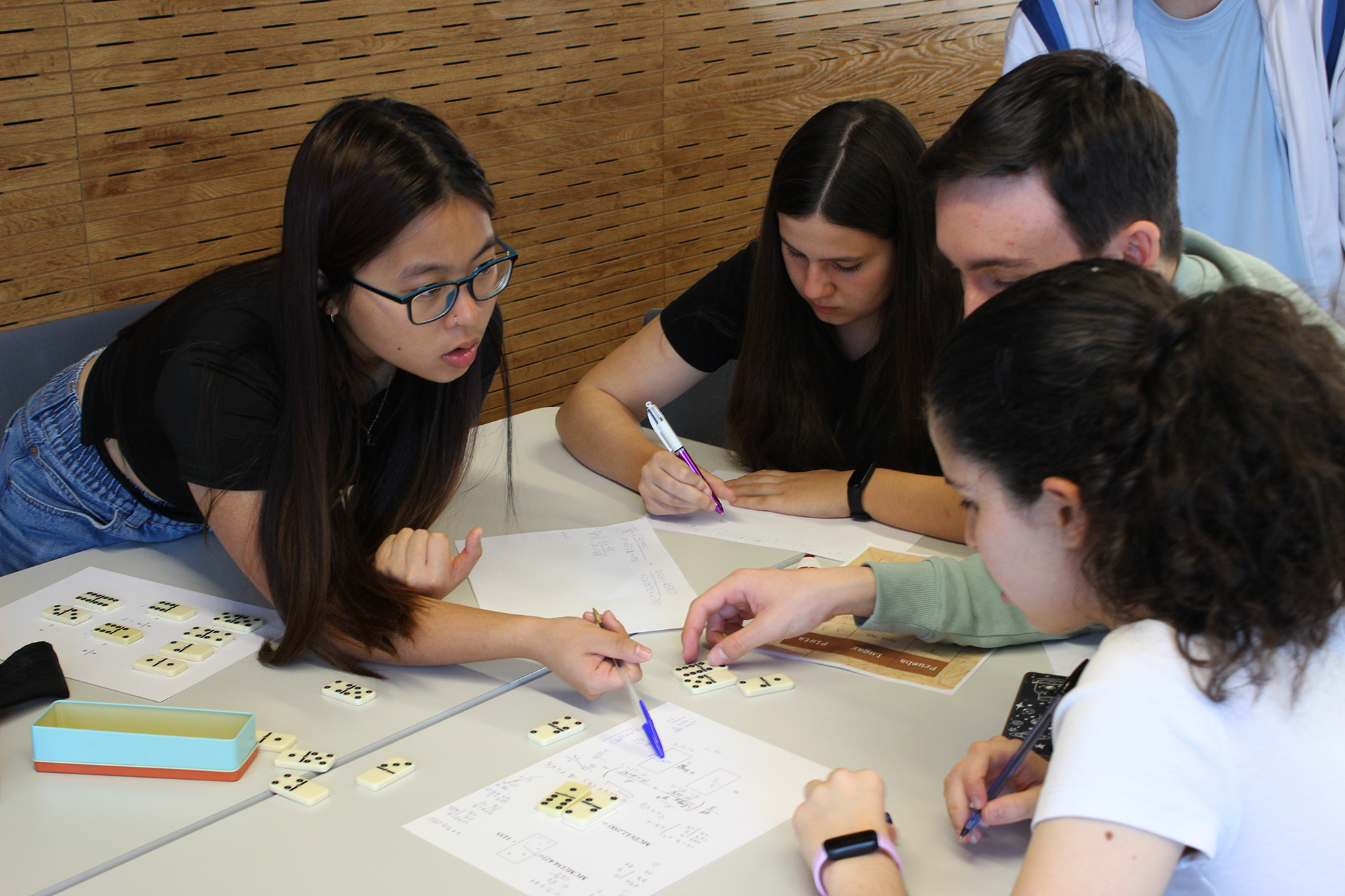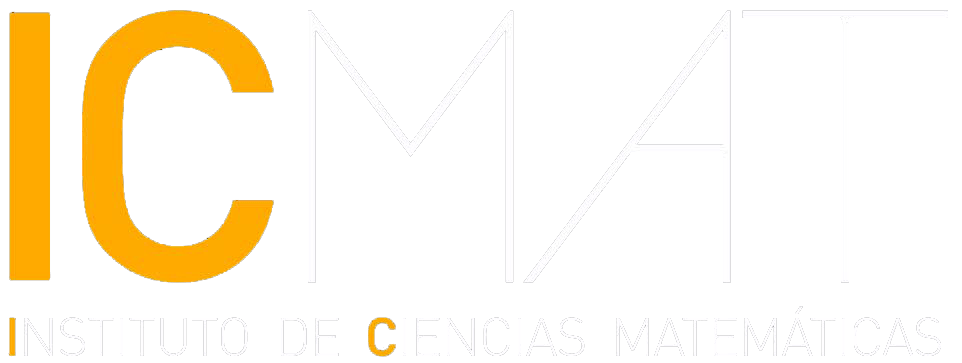
The ICMAT offers a programme of workshops and activities that bring mathematical work closer to 4th ESO students in the Community of Madrid. Image: Laura Moreno Iraola/ ICMAT.
Date and time: 7-9 April, from 10:00 to 14:00.
Place: Sala Gris 2, ICMAT.
Summary: What is it like to work in a mathematics research centre? For three days, a group of boys and girls in the 4th year of ESO will be introduced to the daily activities of the ICMAT, with the aim of turning mathematical research into a career option, showing students what the day-to-day work of a mathematical scientist is like and explaining the routes to get there. Students visit the ICMAT facilities and come into contact with its research staff. In addition, several talks and workshops are offered to bring the research work in mathematics closer to the 4th year ESO level.
This activity is part of the CSIC programme as part of the Community of Madrid’s ‘4º ESO + Empresa’ initiative.
Programme 2025
Monday, April 7
10:00 – 10:30. Welcome, presentation of ICMAT and research career, and center visit, Javier Aramayona, director of ICMAT.
10:30 – 11:30. Talk-workshop: “Lights and Shadows of Big Data and Artificial Intelligence,” David Ríos, Senior Scientist at CSIC in ICMAT.
Autonomous cars, emotional social robots, air safety in Spain and colorectal cancer prediction are just a few examples of applications of big data and artificial intelligence. This talk will present projects led by ICMAT research staff on these topics, which will serve to show the role of mathematics in these fields, as well as to discuss the benefits they can bring to society, but also the risks they entail and how to mitigate them.
11:30 – 12:00. Break-breakfast (*).
12:00 – 14:00. Mathematics Scavenger Hunt, QED Association of Mathematics degree students from the Autonomous University of Madrid.
A scavenger hunt in which participants will be organized into groups to solve a series of challenges involving different mathematical skills—logical, numerical, geometric, cryptographic, etc.—in an engaging and participatory way.
Tuesday, April 8
10:00 – 11:30. Workshop: “Colors and Points: Visual Mathematical Challenges,” Pablo Hidalgo, PhD researcher at ICMAT and CSIC.
In various branches of mathematics, problems are studied that seek to understand the properties of special point configurations on certain objects. A classic example is the following: What is the minimum number of colors needed to paint the plane so that any two points exactly one unit apart are always painted in different colors? In this workshop, participants will tackle such problems, which require no prior knowledge, only visual and intuitive approaches. Additionally, we will explore how these questions connect to research conducted at ICMAT and other institutions.
11:30 – 12:00. Break-breakfast (*).
12:00 – 12:30. Visit to the Jorge Juan Library at the Center for Theoretical Physics and Mathematics (CFTMAT), Ricardo Martínez de Madariaga, Head of the Jorge Juan Library at CFTMAT.
12:30 – 14:00. Workshop: ‘From Ink to TikTok: mathematics of propagation’, Mar González and Ana Primo, professors at the Universidad Autónoma de Madrid and researchers at the ICMAT.
Imagine a falling ball that, upon encountering obstacles, randomly deviates to the right or left, until it lands in different squares. The result is a random walk. If we repeat the experiment, a pattern appears that can be approximated by the so-called normal distribution. This concept is connected to Brownian motion, which is observed in the diffusion of ink in water. Its mathematical description gives rise to different models that are used, among other things, to describe and predict the propagation of information in social networks.
Wednesday, April 9
10:00 – 11:30. Talk-workshop: “The Mathematics of Growth: Rabbits, Viruses, and Mathematical Models,” Enrique García-Sánchez, PhD researcher at ICMAT and CSIC.
One of the main applications of mathematics is modeling physical, biological, or demographic systems to better understand them and predict their behavior. In this talk, we will understand what a mathematical model is and what its key components are, using concepts such as exponential growth and simple examples like the logistic equation, predator-prey systems, or the SIR model for the spread of epidemic diseases.
11:30 – 12:00. Break-breakfast (*).
12:00 – 13:30. Workshop: “Geometry of Soap Bubbles,” Juan Manuel López, PhD researcher at ICMAT and CSIC.
In this workshop, we will explore, from both a theoretical and practical perspective, some fascinating geometric problems, such as the problem of Dido, Queen of Carthage. Using soap films, we will see how these problems are naturally solved, bridging the gap between theoretical and practical mathematics.
13:30 – 14:00. Informative session and Q&A: “The Research Career: Pathways, Scholarships, Introduction to Research, PIM, MIP Programs,” Javier Aramayona, director of ICMAT.
This content has been automatically translated. The original text may differ slightly
